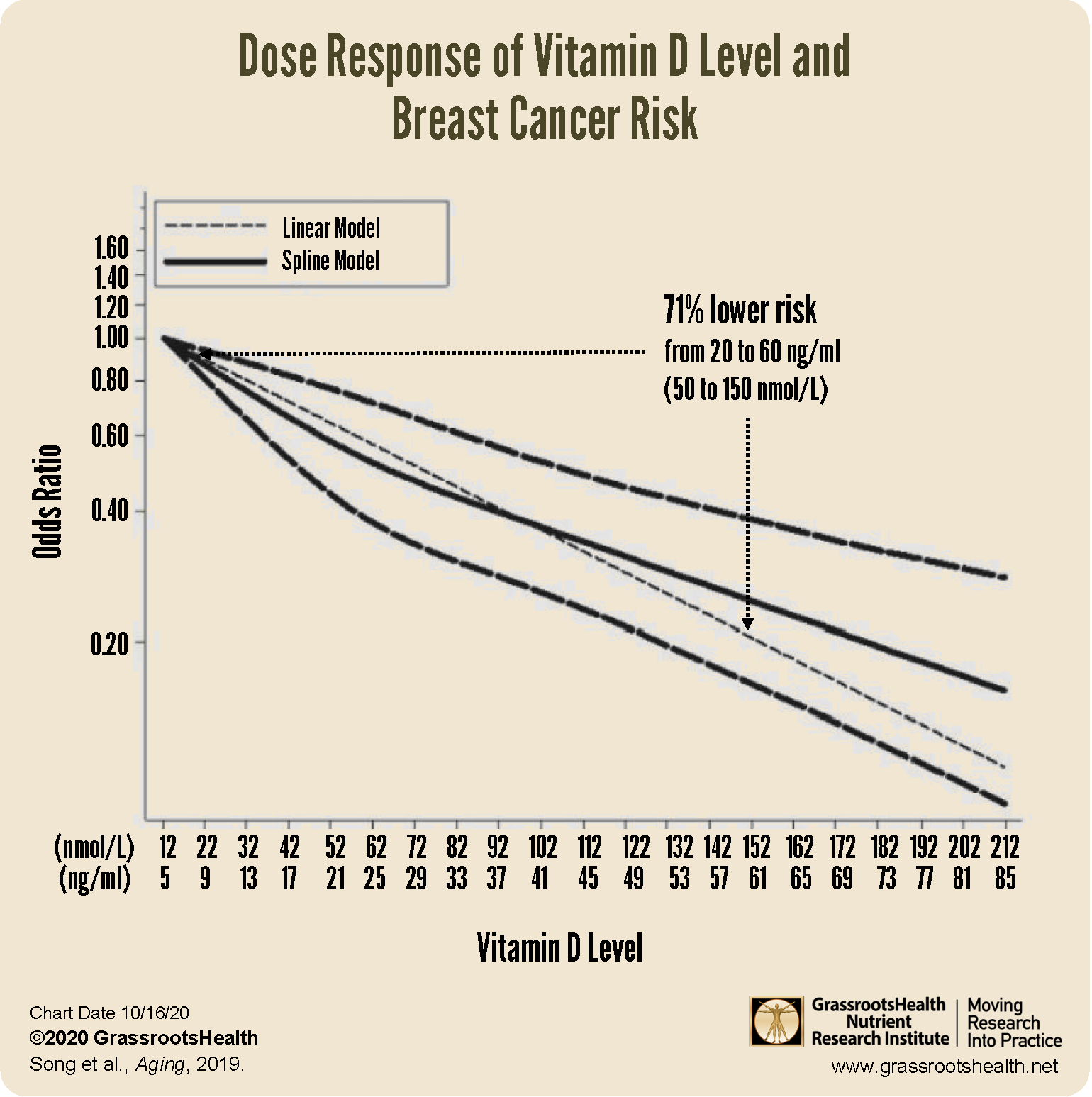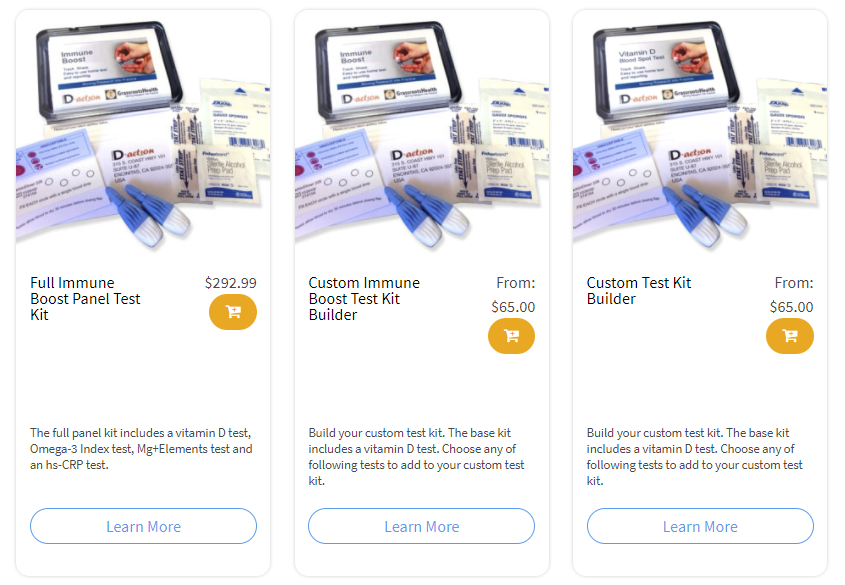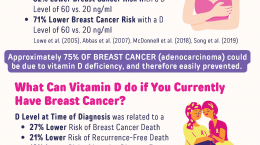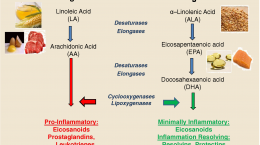Published on October 27, 2020
Breast Cancer Risk ~70% Lower with Higher Vitamin D (60+ ng/ml) – Part 5
 In a previous post we summarized an analysis published by GrassrootsHealth that showed women with vitamin D levels at or above 60 ng/ml (150 nmol/L) had an 80% lower breast cancer risk compared to women with levels less than 20 ng/ml (50 nmol/L). In another post we discussed a study that found the same result among women in the United Kingdom — an 83% lower breast cancer risk with vitamin D levels above 60 ng/ml. In today’s blog we will summarize the findings from a third study, a 2019 meta-analysis by Song et al. which analyzed data from 70 observational studies.
In a previous post we summarized an analysis published by GrassrootsHealth that showed women with vitamin D levels at or above 60 ng/ml (150 nmol/L) had an 80% lower breast cancer risk compared to women with levels less than 20 ng/ml (50 nmol/L). In another post we discussed a study that found the same result among women in the United Kingdom — an 83% lower breast cancer risk with vitamin D levels above 60 ng/ml. In today’s blog we will summarize the findings from a third study, a 2019 meta-analysis by Song et al. which analyzed data from 70 observational studies.
Breast Cancer Risk Declined as Vitamin D Level Rose
The dose response relationship between vitamin D level and breast cancer risk is shown on the chart below. Specifically, the researchers found a 6% decrease in breast cancer risk for every 2 ng/ml (5 nmol/L) increase in vitamin D level. This translates to a 71% lower risk from 20 to 60 ng/ml (50 to 150 nmol/L).
The similar findings between these three studies (GrassrootsHealth, Lowe et al., and Song et al.) emphasize the importance of improving vitamin D status for breast cancer prevention.
Do you know your vitamin D level? Take action now to reach your target vitamin D level; start by finding out where your level is at today.
Many other studies have also been published showing a decreased risk of breast cancer associated with a higher vitamin D level! A summary of this research can be found on our Breast Cancer Prevention Study project page.
Stay tuned over the rest of the month of October for more information on vitamin D and other nutrients that may help reduce the risk of breast cancer.
Are You Getting Enough Nutrients to Help Your Body Fight Disease?
Join the Breast Cancer Prevention Study to find out! Using the GrassrootsHealth Custom Kit Builder, you can create a test kit that measures the status of nutrients important to the regulation of inflammation (such as vitamin D, omega-3s, and magnesium), as well as your CRP level. Click here to build and order your test kit today – measure your status and take the steps necessary to improve them if needed; make an impact on your health today and for your future! When you know what your levels are, you can determine next steps to take and how much supplementation may be needed if you are not at your target levels.
Concerned specifically about your immune health? See if your immune system might be needing more vitamin D and other immune boosting nutrients by enrolling in the Immune Boost Project with the Full Immune Boost Panel (which includes tests for vitamin D, Omega-3 Index, magnesium, zinc, selenium, copper, and hsCRP), and get 10% off when you use coupon code BoostTen at checkout.
What Does it Take YOU to Get Your D to 40 ng/ml (100 nmol/L)?
Did you know your health could be greatly affected by making sure you have a vitamin D level of at least 40 ng/ml (100 nmol/L)? Help us help you.
STEP 1 – Do you know what your vitamin D level is? If not, be sure to test today to find out.
STEP 2 – Determine your target level. Are you at your target level? Experts recommend a level of at least 40-60 ng/ml (100-150 nmol/L).
STEP 3 – Need to boost your level? Use the D*calculator to see how much vitamin D it may take to reach your target. Opt for the Loading Dose for a quicker boost.
STEP 4 – Optimize how your body absorbs and utilizes vitamin D with co-nutrients and these simple steps.
STEP 5 – Re-Test! This is an important step to make sure you have reached your target level, and to ensure you are not taking too much! Re-testing after 3-4 months is recommended.
STEP 6 – Adjust, Repeat…
Give your immune system the nutrients it needs to support a healthy you and protect yourself from unnecessary diseases, especially COVID-19.
NEWS ALERT
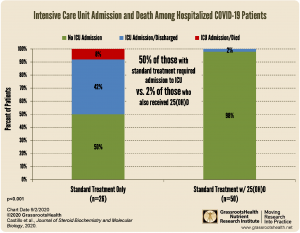 The first Randomized Controlled Trial on vitamin D and COVID-19 has shown a 96% lower risk of ICU admission for those receiving vitamin D (as 25(OH)D to quickly boost vitamin D blood levels) along with the standard treatment, compared to those receiving standard treatment alone.
The first Randomized Controlled Trial on vitamin D and COVID-19 has shown a 96% lower risk of ICU admission for those receiving vitamin D (as 25(OH)D to quickly boost vitamin D blood levels) along with the standard treatment, compared to those receiving standard treatment alone.
These results support many previous observational studies showing a relationship between vitamin D levels and intake and COVID-19 severity.
Review the Latest Nutrient Research for COVID-19
GrassrootsHealth Nutrient Research Institute has launched the new Immune Boost project with the use of our myData-myAnswers nutrient health system that nearly 15,000 people are already using for their health. Specific markers that influence immune health are suggested for testing as part of this project including:
- Vitamin D
- Omega-3 Index
- Essential elements magnesium, selenium, and zinc
- hsCRP
Our goal is to demonstrate how one can use the Nutrient Research Model established by Dr. Robert Heaney to show the effect of vitamin D serum levels of at least 40 ng/ml (100 nmol/L) on risk reduction for all ethnicities in the population. Status and intake of other nutrients will also be analyzed for any type of relationship to immune status and symptom severity. Join the project today!
Please let us know if you’re interested in helping sponsor this project.
Through GrassrootsHealth Nutrient Research Institute, you can also test your essential elements magnesium, copper, zinc and selenium, toxins such as lead, mercury and cadmium, as well as your omega-3 levels, inflammation levels and thyroid stimulating hormone (TSH) level. Find out your levels today! Log on to the test selection page (click the link below) to get your tests and see for yourself if your levels can be improved.
Make sure you track your results before and after, about every 6 months!
Click Here to Access the Test Page
How can I track my nutrient intake and levels over time?
To help you track your supplement use and nutrient levels, GrassrootsHealth has created the Personal Health Nutrient Decision System called
For each specific supplement, you can track what days you take it, how much, and many other details. This will help you know your true supplemental intake and what patterns of use work for you to reach and maintain optimum nutrient levels. Check it out today!


